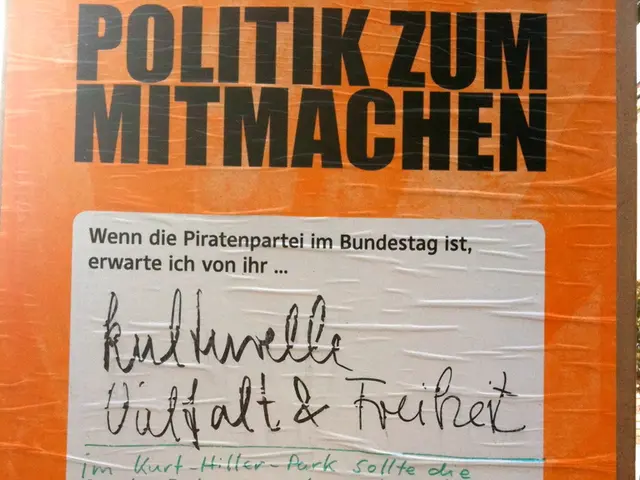Thai administration supports casino legalization, enforcing safety measures
Let's talk about Thailand's casino legalization fiasco
The Thai government, led by Prime Minister Paetongtarn Shinawatra, is playing with fire as it considers legalizing casinos. The main issue at hand? Preventing monopolies from dominating the casino industry, especially with the support of the Bhumjaithai party.
The Bhumjaithai Party, a key player in the coalition government, has long held the vision of developing casinos as part of a broader plan to boost Thailand's economy. However, their members have voiced concerns about the potential risks associated with our matey monopolies.
Korrawee Prissananantakul, a rep from Ang Thong province, spoke in a joint session of the House of Representatives and Senate, warning about the dangers of allowing a few bigwigs to control the casino market. If this were to happen, a small clique of investors would see their bank accounts swell while ordinary citizens were left high and dry. Instead, the Bhumjaithai Party suggested that the government, instead of leaving the casino industry in the hands of private investors, should invest and operate these casinos to ensure that the bigger slice of the revenue goes towards the wellbeing of the public.
Apart from the monopoly concerns, the Bhumjaithai Party also raised worries about building casinos in smaller cities. They believe that constructing entertainment complexes in less populated areas would result in an unequal distribution of income, where wealthy investors would profit disproportionately while the local residents would see little or no improvement in their quality of life.
With the Pheu Thai Party, holding 17 out of 35 cabinet seats, at the forefront of this initiative, the casino project has gained some steam. Time will tell if these concerns are addressed or will the politicians keep their heads buried in the sand.
Legalizing casinos could bring in some dough, but at what cost?
According to previous reports, the Thai government plans to develop three casinos in Bangkok and seven integrated resorts nationwide. These projects could generate substantial revenue, with estimates reaching a whopping $30 million annually just from concession fees. This would provide a significant boost to Thailand's already thriving tourism industry, attracting millions of tourists, creating thousands of jobs, and providing a sizable source of revenue for the government.
These funds could be invested in infrastructure, health, and education, thus improving the quality of life for Thai citizens. However, the question remains, is the potential benefit worth the risk of allowing monopolies and the disparity in income between local residents and wealthy investors? Only time will tell.
If you're raring to go on the latest iGaming news, make sure to follow the countdown of the Top 10 News of SiGMA and subscribe to our weekly newsletter. Here's the link, mate: **subscribe here.
Cheers, and may your bets always roll in your favor!
- The concern in Thailand's casino legalization revolves around preventing monopolies from dominating the casino industry, a risk raised by the Bhumjaithai Party.
- If implemented, the casino projects could generate substantial revenue, with estimates reaching $30 million annually, and boost the economy, especially the tourism industry.
- However, the economic advantages could come at a cost, as the Bhumjaithai Party voiced concerns about unequal distribution of income, especially in smaller cities, if casinos are built and controlled by a few wealthy investors.







